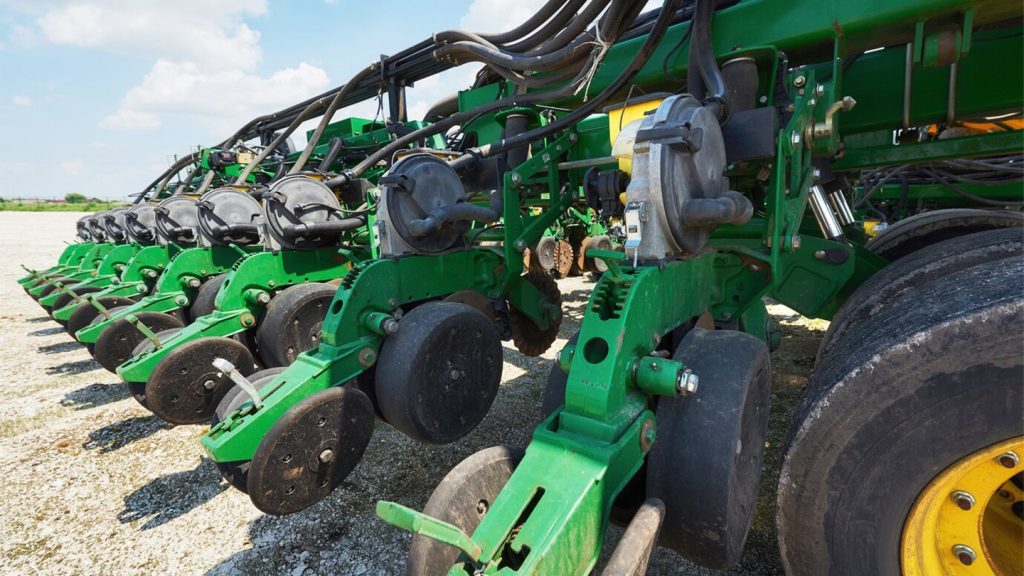Farm equipment auctions are crucial marketplaces where farmers can efficiently buy and sell agricultural machinery and tools.
Whether you’re looking to upgrade your equipment or liquidate assets, participating in these auctions requires careful consideration of several key factors. In this guide, we’ll explore the essential elements to remember to ensure a successful and rewarding experience at farm equipment auctions.
1. Equipment Assessment and Needs Analysis
Before diving into an auction, conduct a comprehensive assessment of your farm’s equipment requirements. Identify the machinery and tools needed to optimize your operations and enhance productivity.
Consider farm size, crop type, terrain, and labor requirements to determine the most suitable equipment. By understanding your equipment needs upfront, you can focus on acquiring the right assets at the auction.
2. Budget and Financial Planning
Establishing a clear budget is essential for effectively navigating farm equipment auctions. Determine the maximum amount you’ll spend on equipment purchases, considering your financial resources and long-term investment goals.
Consider additional expenses such as buyer’s premiums, taxes, transportation costs, and potential refurbishment or repair expenses. Maintaining a disciplined approach to budgeting will help you avoid overspending and ensure a financially sound outcome.
3. Research and Due Diligence
It is very important to do thorough research and due diligence before participating in farm equipment auctions. Familiarize yourself with the types of equipment available, their market values, and prevailing industry trends.
Review auction listings, catalogs, and descriptions to assess the condition, age, and equipment specifications. Conduct background checks on sellers and auctioneers to verify their credibility and reputation. With proper information you can minimize risks associated with equipment purchases.
4. Inspection and Evaluation
Prioritize equipment inspection and evaluation to assess its condition, functionality, and suitability for your farming operations. Conduct on-site inspections or arrange for third-party inspections to thoroughly examine the equipment whenever possible.
Thoroughly inspect the signs of wear and tear, damage, rust, or any issues that may affect performance or longevity. Evaluate the maintenance history, usage patterns, and any available documentation to accurately gauge the equipment’s overall condition.
Investing time and effort in inspection and evaluation upfront can help you avoid potential headaches and costly repairs down the line.
5. Auction Dynamics and Bidding Strategies
Understanding the dynamics of farm equipment auctions is essential for maximizing your chances of success. Familiarize yourself with the auction process, including bidding increments, bid acceptance terms, and payment procedures.
Develop effective bidding strategies tailored to your budget, desired items, and market conditions. Consider employing tactics such as proxy bidding, strategic timing, and setting maximum bid limits to increase your competitiveness and optimize your chances of securing desired equipment at favorable prices.
6. Consideration of Long-Term Value
When evaluating equipment at auctions, consider its immediate utility, long-term value, and return on investment. Assess the equipment’s durability, reliability, and compatibility with future needs and upgrades.
Look for reputable brands, quality craftsmanship, and features that enhance efficiency and performance. Consider resale value, depreciation rates, and technological advancements to ensure that your equipment investments remain viable and lucrative over time.
7. Legal and Contractual Considerations
You must know the legal and contractual obligations associated with participating in farm equipment auctions. Review auction terms and conditions, including buyer responsibilities, payment deadlines, and dispute resolution mechanisms.
Clarify any ambiguities or concerns with the auctioneer or seller before committing to a purchase. Obtain written contracts or agreements outlining the terms of the transaction to protect your interests and mitigate potential risks.
8. Post-Auction Logistics and Support
Plan for post-auction logistics, including transportation, delivery, and installation of purchased equipment. Coordinate with sellers or auctioneers to arrange for pickup or shipping arrangements promptly.
Ensure that you have adequate storage facilities or accommodations prepared to receive the equipment upon arrival. Seek assistance from professionals or experts, particularly for transporting or installing large or heavy machinery.
Establish open lines of communication with sellers to address any post-sale issues or concerns and seek support as necessary.
9. Networking and Relationship Building
Farm equipment auctions present valuable networking opportunities for connecting with industry peers, dealers, and suppliers. Engage with fellow participants, exchange insights, and build relationships that can benefit your farming business in the long term.
Attend auction events, seminars, or workshops to expand your knowledge, stay informed about industry developments, and forge valuable connections within the agricultural community.
10. Continuous Learning and Adaptation
Lastly, embrace a mindset of continuous learning and adaptation to successfully navigate the ever-evolving landscape of farm equipment auctions. Stay informed about technological advancements, market trends, and regulatory changes that may impact equipment procurement and management.
Evaluate your auction experiences, learn from successes and failures, and adjust your strategies accordingly. By remaining agile, proactive, and receptive to new opportunities, you can enhance your capabilities and achieve sustainable growth and success in the agricultural industry.
In conclusion, participating in farm equipment auctions requires careful consideration of various factors to ensure a successful outcome.
By conducting equipment assessments, establishing budgets, conducting research, prioritizing inspection and evaluation, understanding auction dynamics, considering long-term value, addressing legal considerations, planning for post-auction logistics, nurturing relationships, and embracing continuous learning, farmers can optimize their auction experiences and make informed decisions.
With a strategic approach and attention to detail, farm equipment auctions can serve as valuable resources for acquiring essential assets and driving agricultural productivity and profitability.

